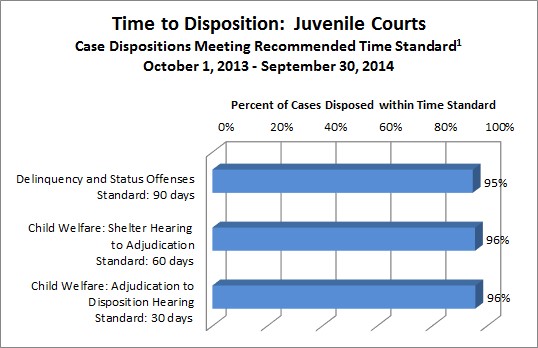The Juvenile Court has jurisdiction over youth, less than 18 years of age, who violate federal, state, or municipal law. The Juvenile Courts also have responsibility for any child who is abused, neglected, or dependent. The court has the power to determine child custody, support, and visitation. It can permanently terminate parental rights, and authorize or require treatment for children with psychological or developmental problems.
During the 2015 General Session, the Legislature appropriated for Fiscal Year 2016, $39,310,300 from all sources for Juvenile Courts. This is a 2.3 percent increase from Fiscal Year 2015 revised estimated amounts from all sources. The total includes $35,735,100 from the General/Education Funds, an increase of 3.3 percent from revised Fiscal Year 2015 estimates.
In addition to statewide compensation and internal service fund cost increases, the following appropriation adjustments were made during the 2015 General Session:
Judicial Districts There are 29 juvenile court judges and 1.5 commissioners in the state's eight judicial districts.
Interstate Compact As a member of the Interstate Compact on Juveniles, the court accepts supervision of juveniles who move to Utah from other states (who were under court supervision before moving). In turn, the court often requests other states to supervise juveniles who move while still under court supervision in Utah.
The court can place children in probation supervision, custody, foster homes, group homes, special treatment centers, or secure institutions. The Office of Guardian ad Litem appears in Juvenile Court on cases involving abuse, neglect, or dependency. Juvenile Courts can require juveniles to pay fines, and make restitution for damage and loss resulting from delinquent acts. The court has jurisdiction over habitual truants, runaways, and ungovernable youth-if efforts by other social service agencies are not successful.
In addition, the court has exclusive jurisdiction in traffic offenses involving minors related to automobile homicide, driving under the influence of alcohol or drugs, reckless driving, joy riding, or fleeing a police officer. Juvenile Court has concurrent jurisdiction with the District and Justice Courts over adults contributing to the delinquency and neglect of a minor and lesser traffic matters.
The Juvenile Court, unlike other state courts of record, administers a probation department. Probation officers prepare dispositional reports, supervise youth who have been placed on probation by the court, conduct evaluations, and submit reports on the progress of each juvenile.
COBI contains unaudited data as presented to the Legislature by state agencies at the time of publication. For audited financial data see the State of Utah's Comprehensive Annual Financial Reports.

